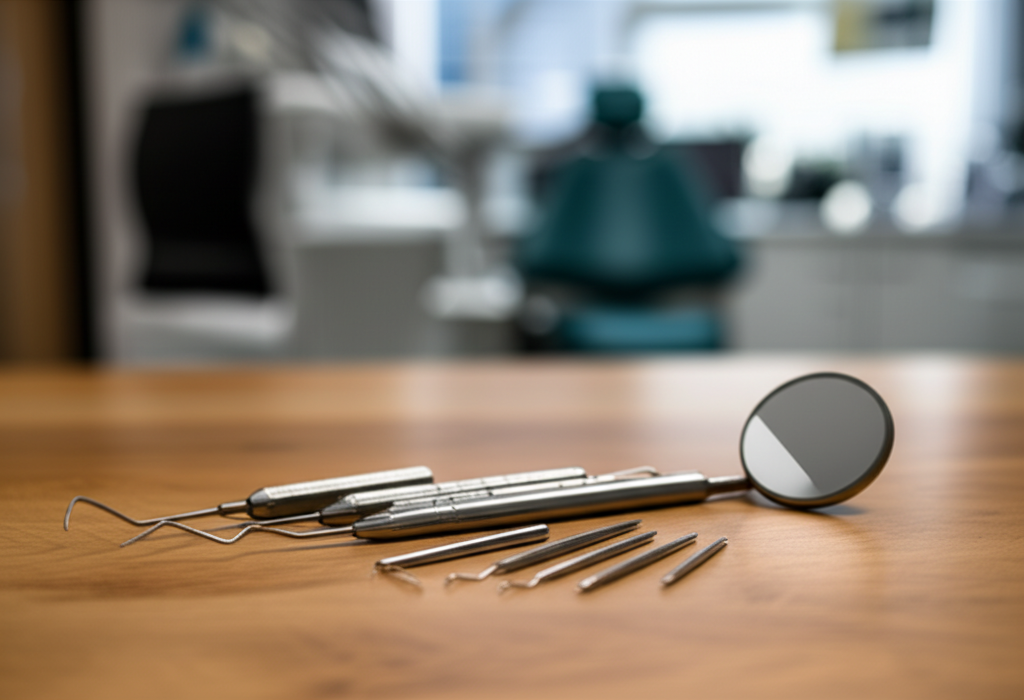
How to Own a Dental Practice Without Being a Dentist: An Honest Guide for Non-Clinicians
That “can I really own a dental office if I’m not a dentist?” question pops up more often than you’d think—and if you’re here, you’ve probably wondered that yourself. You’ve eyed the dental industry: it’s steady, still growing, and people will always need teeth fixed. But is it really possible for someone with no license or hands-on background to get into this business? And if so, how can you do it legally, make money, and do things the right way? If you feel like the rules don’t make sense and you just want a clear answer, relax—you’re in the right place.
Owning a dental office as a non-dentist is more common these days, but the path is full of turns, weird words, and a patchy set of rules depending on where you live. Today, I’m going to break it all down using simple words, real world examples, and some easy ideas. Whether you’re a small business owner, someone looking to invest, or just checking out what’s possible, this guide is for you.
In This Article
- Why Non-Dentists Want to Own Dental Practices—and If It’s Even Allowed
- Understanding the Rules: What Are the Corporate Practice of Dentistry (CPOD) Laws?
- Ownership Models: How Non-Dentists Can Legally Join the Dental Industry
- Step-by-Step: A Non-Dentist’s Roadmap to Practice Ownership
- The Hurdles: Challenges and Risks Every Non-Dentist Owner Must Face
- Why Bother? The Payoff and Potential Rewards for Non-Clinicians
- What Makes Non-Dentist Owners Succeed (and Where They Slip)
- Wrapping Up: Next Steps on Your Dental Business Journey
Why Non-Dentists Want to Own Dental Practices—And If It’s Even Allowed
Let’s start with the big question you’re asking: Can you really own a dental office if you’re not a licensed dentist?
Short answer: Yes, in many states—but you have to do it the right way.
Here’s why lots of people ask this:
- The dental business brings in a lot of money. The U.S. dental industry is worth over $140 billion a year and keeps growing.
- It’s steady. Even when the economy is bad, people still need dental care.
- It makes steady money. Much of dental care is regular check-ups or cleanings, so the income is more predictable.
- It can grow. With the right setup, you can own one office or lots of them.
- You don’t have to work on teeth! Business people want a piece of those profits, but not everyone wants to look in people’s mouths.
But here’s the catch: Dental offices aren’t like other small businesses. You can’t just buy a clinic, put your name on it, and take home cash. The law—and basic good sense—draw a hard line between the business side and the dentist’s work, and you’ll need to know both sides to win (and avoid problems).
I’ll show you the basics—plus how to play by the rules.
Understanding the Rules: What Are the Corporate Practice of Dentistry (CPOD) Laws?
Imagine you want to open a bakery, but in half the states, you’d only be allowed to own the ovens and tables—not actually run the business. It sounds weird, but that’s kind of how Corporate Practice of Dentistry laws work in dental care.
CPOD laws aren’t about keeping non-dentists out. They want to make sure only licensed dentists make health care choices—a rule meant to protect patients from anyone only caring about money over health.
How Do CPOD Laws Affect Non-Dentist Ownership?
- In about 30 states (like Texas and California), CPOD rules are strict. Non-dentists can’t own or control the business that gives dental care.
- Other states are looser or have special rules that let non-dentists get in on the business side, as long as they don’t work on patient care decisions.
What Does This Mean for You?
- If you’re in a strict CPOD state, you can’t own the business that gives dental care.
- But you can own a business that does things like marketing, HR, or billing for a dental office.
What’s Allowed? (And What’s Not)
- Allowed: Owning the real estate, managing hiring and advertising, handling billing and computer systems, even controlling the business side (if set up right).
- Not allowed: Telling dentists how to treat patients, pushing dentists to do more dental work, or owning the business that does dental work—unless you have a dental license.
Key Legal Setups at a Glance
- Management Service Organization (MSO): You own and run the “business” (like advertising, payroll, billing, etc.). A dentist owns the dental office and does patient care.
- Dental Support Organization (DSO): Like an MSO but bigger—can cover lots of offices and even different states.
- Silent Partner, Leasing, or Other Ways: In some places, you can own things or invest quietly—but always talk to a lawyer who knows the rules, so you don’t end up in trouble.
The “Managing Dentist” Piece
You’ll need a licensed dentist “in charge” of the patient side. Think of them as the plane’s pilot and you as the person keeping things running on the ground—both important, both different jobs. That way, patient care is always in the hands of the experts.
Ownership Models: How Non-Dentists Can Legally Join the Dental Industry
Okay, you might ask, “If I can’t own the dental office itself, what can I own?” Here’s where it gets real.
1. Management Service Organization (MSO): The Most Common Way
Think of an MSO like the engine room. You’re not steering the ship, but you’re running everything to keep the ship moving—like marketing, payroll, money stuff, scheduling, tech, and more.
How Does the MSO Way Work?
- You (the non-dentist) start and own the MSO.
- The MSO signs a deal with one or more dental offices (each owned by a dentist or a special dentist company) to help run things for a fair price.
- The dentist(s) handle patient care, and you focus on business and growing.
Pros:
- Legal in pretty much every state.
- You run the business stuff and can own part of the MSO.
- Can grow to lots of offices.
Cons:
- Need a great relationship with dentists. You’re more like partners, not boss and worker.
- Keeping dental work and business apart can get tricky, especially when stuff goes wrong.
2. Dental Support Organization (DSO): For When You Want to Go Big
If an MSO is like a small chain, a DSO is like a national brand. DSOs own or help manage many dental offices, which saves money and power to buy things in bulk.
Ways to Get Into a DSO:
- Partner up: You join, invest in, or buy into an existing DSO.
- Make your own: You build your own DSO from the ground up, growing office by office.
DSO Pros:
- Can get better deals from suppliers.
- Save money by pooling services.
- Can get big money from investors if you grow fast.
DSO Cons:
- Rules get more complicated. Every state, sometimes every city, can be different.
- Lots of big companies are already here—tough competition.
- Dentists sometimes don’t like losing control over their work.
3. Buy an Existing Practice
Some non-dentists start by buying just the “stuff”—not the patient side—of a real office, like the building, equipment, or even patient charts, with the dentist still owning the medical part and you handling the back end.
Pros:
- Get patients and money coming in right away.
- Staff is already working there.
- Often easier to get a loan.
Cons:
- Need to check everything closely (the money numbers, rules, if the community likes the office).
- How well you do depends a lot on keeping the staff happy and patients coming back.
4. Build Your Own (From Nothing)
Make your own office, hire your own dentist, and put together your team—it’s like a start-up but in teeth.
Pros:
- Total control over how the office works, the look, and the people.
- Everything is brand new.
Cons:
- Big up-front costs. The building, the chairs, tech—all cost a lot.
- Takes time to get patients and become profitable.
Word to the Wise:
Business types—LLC, S-Corp, C-Corp, and Professional Corporation (PC)—all have their own good and bad sides, and legal rules for who can own what. You need a lawyer who knows healthcare and dental rules before you buy or sign anything.
Step-by-Step: A Non-Dentist’s Roadmap to Practice Ownership
Let’s break this journey into steps you can actually do, with some examples:
1. Know the Market & Make Your Business Plan
- Start by learning about your area. Figure out which places don’t have a modern dental office nearby, what people want most, and who else is already there.
- Write a clear business plan. Say how you’ll get patients, what kind of office you want to help run, and what will make you stand out. Put in money numbers too.
Tip: Check out digital tools used by a digital dental lab to see how tech can help a modern office.
2. Get the Money You Need
- You’ll need cash—between $250,000 and $1 million to get, set up, or start a dental office.
- Ways to get money:
- SBA 7(a) loans (great for healthcare businesses).
- Banks with dental practice divisions.
- Private investors (more of these are buying into dental offices now).
- Your own money or teaming up with others.
3. Build a Team of Advisors and Workers
- Find the right dentist to run things. This is the key to your office. Many dentists don’t want to own a business, so they like having someone else handle business headaches.
- Hire good staff. Office manager, hygienists, dental assistants, people at the front desk, and someone for advertising.
- Get good advisors: A healthcare lawyer, dental accountant, marketing pro, and even a good dental ceramics lab to work with.
4. Follow All Legal and Rule Requirements
- Set up the businesses. Usually the MSO is an LLC or something similar (your side), and the dentist company is owned by the dentist and does the dental work.
- Do all the steps for state and federal rules. Not just business licenses—you also have to keep up with OSHA (safety), HIPAA (protecting patient info), and state dental board rules.
- Get the right insurance. Including dental lawsuits, regular business risk, property, and if the business has to be shut for a while.
5. Start Running the Office
- Put in good computer and office systems. Buy practice management software, good x-ray machines, and keep your tech up to date.
- Come up with a plan to get patients. Do flyers, signs, and build a good online reputation, but also use social media and online booking.
- Get your supplies in order. Work with good partners for dental supplies, labs (like a china dental lab), and equipment help.
The Hurdles: Challenges and Risks Every Non-Dentist Owner Must Face
No sugarcoating here: Not everything is perfect or easy in this business.
1. Tough Rule Maze
The rules change, are different everywhere, and what’s okay in one state could get you in big trouble next door. You’ll need help, and to always pay attention when rules change. You can’t ignore this stuff.
2. You Rely on Dentists
Not enough dentists in some areas means hiring, keeping, and making your dentist partners happy is a big deal.
- Pay and benefits have to compete with other offices.
- The best dentists want to make their own choices—treat them as real partners.
3. Running the Office Is Complicated
Running an office isn’t just about being friendly at the front. Lots of stuff going on:
- Scheduling patients just right.
- Hiring, training, and making sure everyone does a good job.
- Keeping computers up to date and making sure insurance stuff is smooth.
4. Money Risk
Getting started costs a lot. You can make good money, but it takes a while—maybe 2 to 3 years just to break even.
Daily bills usually eat up 60-70% of your money coming in. Good offices can still make 15-25% profits, but it’s easy to waste money if you’re not careful.
5. Doing the Right Thing & Public Trust
You have to keep a clear line: Non-dentists should never push dentists to do more work than needed or skip steps to save money. Even a small rumor like that can ruin your name, draw government attention, and make patients leave.
Why Bother? The Payoff and Potential Rewards for Non-Clinicians
So why do non-dentists go through all this? Here’s the “good side”:
1. Steady, Growing Field
People need more dental care as they get older, and more know good teeth are tied to good health.
2. Predictable Money
Checkups, cleanings, and fixing teeth means people keep coming back.
3. Better Than Average Profits
If you run things well, many offices make 15-25% profit, sometimes more if you build a smart MSO or DSO.
4. Can Grow and Make a Lot
The MSO or DSO way lets you open more offices, cut costs, and draw investors.
5. You Help the Community
Besides making money, you give health care, jobs, and can help areas that are left out.
6. Work with Talented People
You’ll team up with skilled dentists and staff, and learn a lot from them too.
Want a real-world example? DSOs owned about 8% of dental practices in 2010, but now it’s over 30%—and is expected to cover maybe half by 2030. Non-dentist business people now compete with dentists to own a piece of dental care’s future.
What Makes Non-Dentist Owners Succeed (and Where They Slip)
A successful non-dentist owner usually has a few things in common.
What do the winners do right?
- Good leadership, but know when to let experts handle dental stuff.
- Care about patients. Never forget the most important person is the person in the chair.
- Careful with money. Watch the numbers, costs, and how the office does every month.
- Stay smart about the field. Watch for new trends, new tech, and changing rules.
- Keep the team happy. Happy dentists and staff mean happy patients and steady money.
But some slip up. Where do non-dentist owners mess up?
- Trying to boss around on patient care (a quick way to lose dentists and risk trouble).
- Forgetting about the many rules and insurance headaches.
- Growing too quickly without enough management help.
- Skipping advertising, training, or good patient service just to cut costs.
Wrapping Up: Next Steps on Your Dental Business Journey
So, can a non-dentist own a dental office? Yes, if you have the right info, the right people, and the right setup.
Here’s what to remember:
- Check your state’s rules first. CPOD laws make this a local question.
- Know your place as “the business,” not the “dentist.” MSOs and DSOs work for this very reason.
- Find and respect your dentist partners. The dentist is key.
- Run a good, legal business. Use good tech, stay organized, and always do things honestly.
- Focus on helping patients. Great businesses are built on healthy, happy patients.
What You Need to Know—In Simple Words
- Non-dentists can build and own parts of dental offices—if you do your research, keep your hands off dental work, and work with good advisors.
- Build a business that’s honest, runs smooth, and puts patients first.
- The best owners are smart in business but also care about their team and community.
- Before you jump in, get to know your state’s market and pick the right business model.
- Hire a smart healthcare lawyer before signing any papers.
- Think big picture! Dental isn’t a quick money play, but it is a way to build lasting wealth and make a difference.
What to Do Next
Want to go deeper? Try dental practical guide, a simple resource for learning more as a new or future dental business owner.
Checked for medical accuracy and uses up-to-date rules. For more, see guides and sites from the American Dental Association (ADA) and trusted dental industry experts.
Remember: Owning part of a dental office as a non-dentist isn’t easy, but done right, it’s a smart path for folks who want to build a solid, honest, and good business. If you have more questions, keep learning or talk to the right pros to make your plan work.
Keep smiling—and good luck on your business path!








